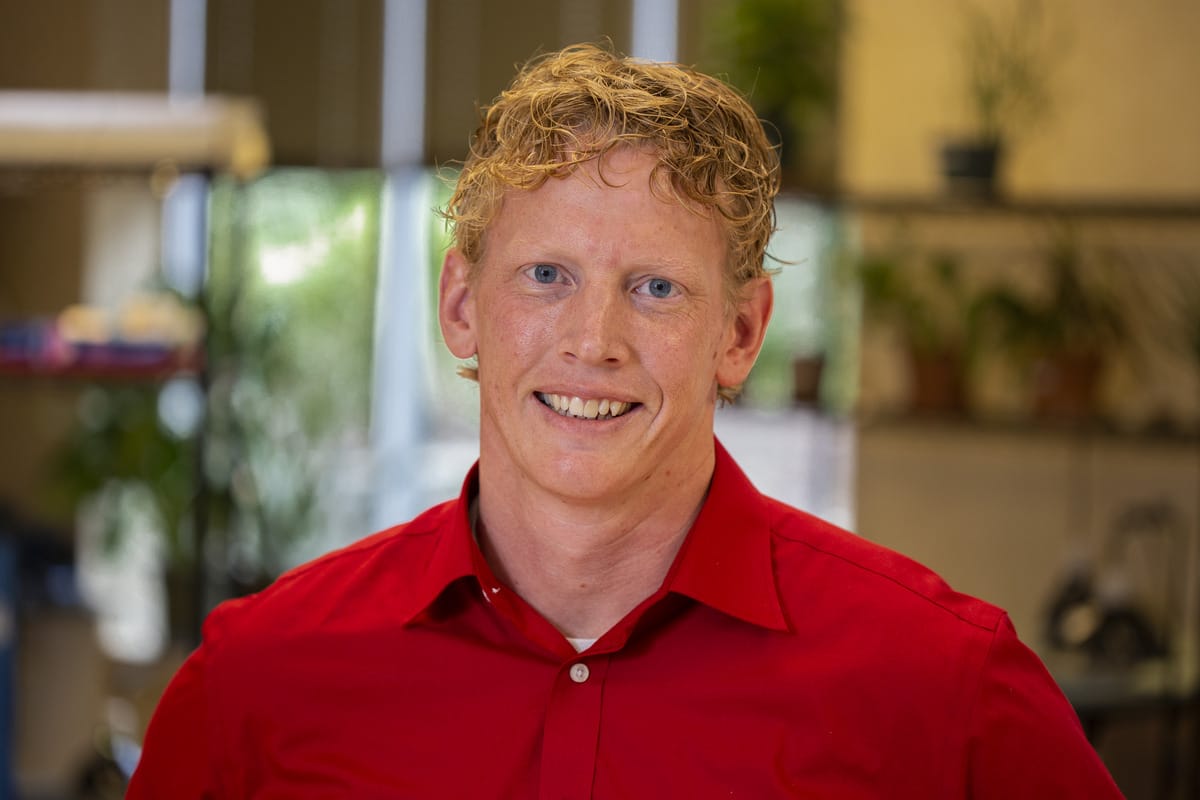Before the pandemic, I would pay $5.25 for a coffee; I would sit by the window to watch the people pass and to collect quotations from the conversations I overheard. Here is one of my favorites:
“If we can’t monetize, then why do we even exist?”
The quote was familiar and uncomfortable. I knew just what he meant; I could hear the human emotion behind struggle and confusion and fear. But I also heard the insidious creep of materialism into matters existential. It’s a shame how impoverished we become when we conflate money with success. How much richer do our lives become when we’re part of a noble mission?
The world pulls us away from deep living—it offers a simple ecosystem of consumers and producers. It encourages us to grease the wheels of industry and economies. Don’t get me wrong, free markets are an incredible force for good, but our lives are richest when we realize that money isn’t what makes life meaningful.
Teachers live each day with this tension. Too often, we implicitly or explicitly instill a mindset in our students that says the purpose of learning is to make money later. If you get good grades, you get into college. If you get into college, you get a better job. A better job means you make more money, so you can die with a bigger house in a better neighborhood.
How can we counteract that drift into shallow waters? How can we help our students live for a mission greater than themselves — and can we use that same thinking to make our teaching careers more enjoyable and rewarding?
The Mountain, the Monastery, and the Metropolis
David Krakaur of the Sante Fe Institute is one of the world’s foremost experts on systems science. He has devoted his life to understanding how information propagates — whether that information is genetic or cultural — and he has developed a framework that’s useful for thinking about the evolution of movements. He talks about innovation moving from the mountain to the monastery to the metropolis.
Most world-changing ideas begin with an individual. There is a flash of inspiration that sets a movement in motion. But that seed can’t sprout in isolation; it needs nourishment from close-knit collaboration. A small group of confidants—the monastery, in Krakauer’s analogy—catalyzes the development of a more rigorous and robust structure around the original concept.
Finally, the idea matures into a full-fledged movement when it enters the metropolis—when it is adopted in a widespread way by society. Through myriad interactions, it subtly evolves. The world’s great philosophies passed through these stages, as did its great corporations. Think of Socrates and his pupils or of Steve Jobs and his secret band of iPhone engineers.
In the Classroom
You see this dynamic in play in your classroom every time you use one of the most powerful collaboration strategies in existence: Think, Pair, Share. Students have time for individual reflection, as well as an opportunity to share and refine their ideas in pairs or small groups. Then, groups share ideas broadly. By taking a concept through this hierarchy of scales, insight flourishes. When it comes to cultivating a more meaningful classroom, we’re applying the same principles.
Our Director of Education, Terra Tarango, began with a bold idea: that school should be about helping students to make the world a better place. Everything we do should advance that objective; we must empower students to have an impact on their communities, today.
I’ve been privileged to participate in the monastic development of this idea over the last two years. A merry band of educators has been laboring to design projects that integrate rich content into engaging projects that help students make a difference. We’ve built plans and supports to make it easier for teachers to teach powerfully. We’ve helped connect schools with real-world experts who can show students why their learning matters. Created learning experiences we believe in — experiences that serve a mission that’s bigger than any one person.
Be a Blue Apple
Across the country, passionate educators are joining that movement, using project-based learning to create classrooms full of world-changers. This paradigm does more than help students learn deeply; it helps them live deeply, and that invigorates their teachers. This movement matters, and I invite you to join.
Check out blueappleteacher.org. As a non-profit organization, we can sell projects essentially at cost. We have scholarships available so that price never keeps a teacher on the sidelines. If these projects don’t inspire you, check out our ideas page to spark your creativity. No matter who or where you are, you are invited.
You’re invited to view of your classroom as something more than a stage in an assembly line. Invited to be more than a way to add value to expected lifetime earnings. You’re invited to be one of the few, and to help us refine and improve our projects so that someday, in the metropolis of ideas, the world will see that the true purpose of education is to help students live with purpose.

